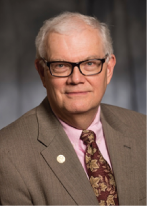The Liaison Committee on Medical Education has recognized the importance of a healthy learning environment for students to optimally learn, to promote well-being, and to develop professionalism. Since 1990 the LCME has used the Graduation Questionnaire (GQ) to survey graduating medical students about their experiences and perceptions of their school’s leaning environment. Many schools’ GQ survey results have shown that students were less likely to report unprofessionalism and mistreatment while in school suggesting students are fearful of reporting while they are students. As a result, the LCME focuses on the learning environment in the accreditation surveys of medical schools.
Following Virginia Tech Carilion School of Medicine’s (VTCSOM) 2013 LCME accreditation visit, the school established the Learning Environment Advocacy Committee (LEAC), a multidisciplinary committee that serves as the clearing house for learning environment concerns from students. The learning environment concerns are reviewed by the committee, recommendations are made to investigate the concerns, and the concerns are addressed in the departments where the unprofessionalism or mistreatment occurred. The LEAC raises awareness of the importance of a healthy learning environment for students, faculty, residents, nurses and staff at VTCSOM and its clinical affiliate. This seminar will review the process of developing the LEAC, the activity of the LEAC since the committee was established, and the results of an organizational wide learning environment survey.
Presenter Bios
 Dr. Harrington received a bachelor of science degree inPharmacy and his medical degreefrom West Virginia University.He wasone of the first residents in the country to complete a combined residency program in Internal Medicineand Psychiatryand is boarded in both specialties. Following completion of residency, Dr. Harrington began his academic career and remained on faculty at the University ofVirginia School of Medicineuntil 1990when he joined Carilion Health System to develop a psychiatry residency. Having mentored many psychiatry residents at Carilion Medical Center,Dr. Harrington has contributed to the careers of numerous psychiatrists,many of whom now work in southwest Virginia. He has greatly enjoyed his work with patients in the Roanoke Valley and was involved with establishment of the Mental Health Collaborative treating patients underserved in traditional health care settings. Dr. Harrington is a Distinguished LifeFellow of the American Psychiatric Association and is active in the Psychiatric Society of Virginia where he serves on the Ethics Committee. In 2007, Dr. Harrington was named VicePresident for Academic Affairs for Carilion Clinicwhere he supervised the expansion of graduate medical educationresulting in the establishment of numerous new residencies and fellowships, and the development of theresearch, simulation, and professional developmentdepartments at Carilion Medical Center. As part of the transformation of the Carilion Clinic, Dr. Harrington was instrumental in the early development of the Virginia Tech Carilion School of Medicine. At the Virginia Tech Carilion School of Medicine, Dr. Harrington is a tenured Professorof Psychiatryand is the Vice Dean for the medical school. In 2014, Dr. Harrington was the recipient of Carilion Clinic’s Robert L. Keeley, M.D. Healing Hands Award for physician leadership and exemplary service to patients.
Dr. Harrington received a bachelor of science degree inPharmacy and his medical degreefrom West Virginia University.He wasone of the first residents in the country to complete a combined residency program in Internal Medicineand Psychiatryand is boarded in both specialties. Following completion of residency, Dr. Harrington began his academic career and remained on faculty at the University ofVirginia School of Medicineuntil 1990when he joined Carilion Health System to develop a psychiatry residency. Having mentored many psychiatry residents at Carilion Medical Center,Dr. Harrington has contributed to the careers of numerous psychiatrists,many of whom now work in southwest Virginia. He has greatly enjoyed his work with patients in the Roanoke Valley and was involved with establishment of the Mental Health Collaborative treating patients underserved in traditional health care settings. Dr. Harrington is a Distinguished LifeFellow of the American Psychiatric Association and is active in the Psychiatric Society of Virginia where he serves on the Ethics Committee. In 2007, Dr. Harrington was named VicePresident for Academic Affairs for Carilion Clinicwhere he supervised the expansion of graduate medical educationresulting in the establishment of numerous new residencies and fellowships, and the development of theresearch, simulation, and professional developmentdepartments at Carilion Medical Center. As part of the transformation of the Carilion Clinic, Dr. Harrington was instrumental in the early development of the Virginia Tech Carilion School of Medicine. At the Virginia Tech Carilion School of Medicine, Dr. Harrington is a tenured Professorof Psychiatryand is the Vice Dean for the medical school. In 2014, Dr. Harrington was the recipient of Carilion Clinic’s Robert L. Keeley, M.D. Healing Hands Award for physician leadership and exemplary service to patients.